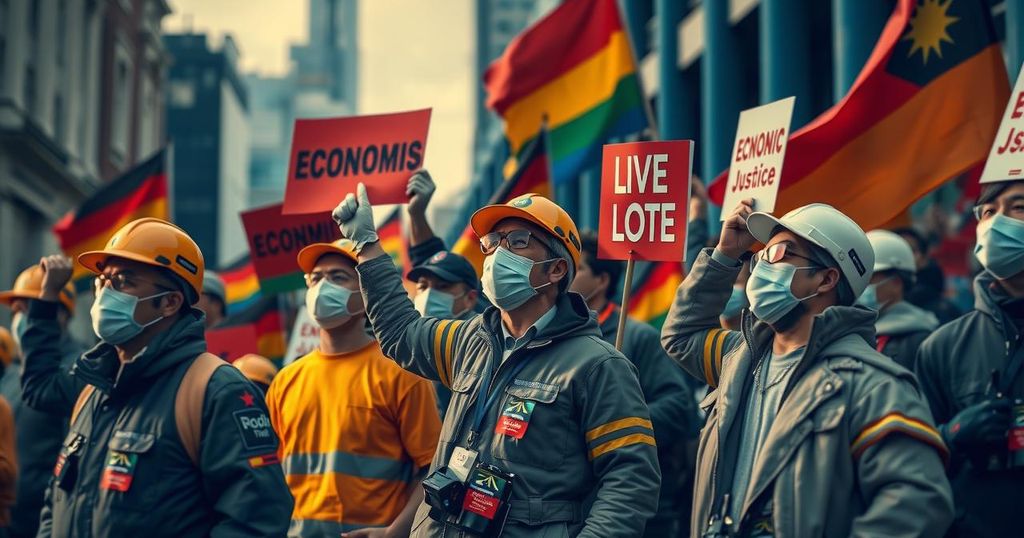The Necessity for Democrats to Reconnect with the Working Class

The abandonment of working-class voters by the Democratic Party has resulted in notable electoral challenges. Personal reflections highlight the frustration of voters who feel neglected amidst a cultural focus. The need for the party to re-engage with economic issues and restore connections with working-class citizens is essential for future electoral success, especially against the backdrop of rising inequality and divided loyalties within the party.
The Democratic Party’s recent retreat from advocating for working-class individuals has led to anticipated negative repercussions, particularly as observed in recent electoral outcomes. A personal account from the author highlights conversations with his father, who, despite supporting Democratic candidates, expresses frustration towards the party’s disconnect from economic realities affecting everyday citizens. The father emphasizes the need for a candid discussion about the economy and critiques the leadership’s focus on cultural issues rather than material struggles. With a background in Mennonite culture and working in a local deli, the author’s father symbolizes many voters who feel disregarded by Democrats, a sentiment echoed in the party’s strategic shift towards affluent suburban voters since 2016. This policy adjustment, aimed at capturing votes from moderate Republicans, has been met with failure, demonstrating that the Democratic Party must rejuvenate its efforts to connect with its traditional base of working-class supporters. Analyses show that while the Democratic Party garnered suburban support in recent elections, working-class areas still present viable opportunities for engagement. Republican strategies, particularly those articulated by figures like Representative Jim Banks, suggest a realignment towards appealing to working-class voters—an area where Democrats have faltered. The continued negligence of economic concerns, in favor of cultural narratives, has allowed Trump to exploit anti-elite sentiments successfully. Democrats’ failure to consistently confront and campaign against prominent economic injustices has alienated potential voters. The Biden administration’s hesitance to challenge established financial systems further exacerbates this divide. By advocating against systemic inequality and engaging directly with the grievances faced by working-class Americans, Democrats can reinvigorate their appeal, and restore faith among those feeling disenfranchised. Moreover, the tension exists within the party, as its leadership attempts to balance the demands of its historical working-class base against the financial encouragement received from affluent donors. This dilemma requires a fundamental reevaluation of strategic priorities if Democrats hope to reclaim legitimacy among working-class citizens. Real strategies should invoke the compelling narratives centered on economic justice, much like the conversations surrounding Bernie Sanders’ candidacy. A failure to address these pressing issues could lead to long-term consequences for the Democratic Party, especially as political sentiments shift and evolve in response to public needs.
The Democratic Party has historically positioned itself as a champion of the working class, advocating for economic justice and social equality. However, recent trends reveal a shift in focus towards affluent suburban voters, often at the expense of traditional working-class support. This pivot, while seemingly strategic, has resulted in decreased engagement with a significant voter demographic and has allowed opposing parties to capitalize on grievances stemming from economic disparities. The ongoing dialogue surrounding the party’s future underscores the necessity for a reevaluation of priorities aimed at reconnecting with working-class citizens.
The Democratic Party faces a critical juncture in addressing the interests of working-class voters, who feel increasingly disenfranchised. By openly confronting economic injustices and fostering narratives that resonate with this demographic, the party can restore trust and electoral viability. A failure to do so may solidify the shift of working-class support towards opposing parties, further complicating the political landscape.
Original Source: www.aljazeera.com




